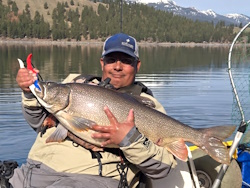|
by elstunar
[Today at 07:39:27 AM]
by dampainter
[March 03, 2026, 02:53:07 PM]
by jed
[March 03, 2026, 09:56:29 AM]
by kemfish
[March 02, 2026, 07:00:29 PM]
by alpalmer
[February 24, 2026, 11:20:44 AM]
by Drifter2007
[February 19, 2026, 03:44:35 PM]
by Nobaddays
[February 16, 2026, 01:50:11 PM]
by Mojo Jojo
[February 14, 2026, 09:26:02 PM]
by Zach.Dennis
[February 13, 2026, 02:54:41 PM]
by BugBoy
[February 06, 2026, 11:41:56 AM]
by rogerdodger
[January 27, 2026, 10:01:41 AM]
by elstunar
[January 22, 2026, 04:53:00 PM]
by Drifter2007
[January 19, 2026, 10:31:33 PM]
by SD2OR
[January 19, 2026, 04:53:11 PM]
by elstunar
[January 18, 2026, 11:35:59 AM]
 Guess who's back? jed with a spring Big Mack |


 Welcome, Guest. Please
Welcome, Guest. Please  March 04, 2026, 09:12:27 PM
March 04, 2026, 09:12:27 PM